- News
- Reviews
- Bikes
- Components
- Bar tape & grips
- Bottom brackets
- Brake & gear cables
- Brake & STI levers
- Brake pads & spares
- Brakes
- Cassettes & freewheels
- Chains
- Chainsets & chainrings
- Derailleurs - front
- Derailleurs - rear
- Forks
- Gear levers & shifters
- Groupsets
- Handlebars & extensions
- Headsets
- Hubs
- Inner tubes
- Pedals
- Quick releases & skewers
- Saddles
- Seatposts
- Stems
- Wheels
- Tyres
- Tubeless valves
- Accessories
- Accessories - misc
- Computer mounts
- Bags
- Bar ends
- Bike bags & cases
- Bottle cages
- Bottles
- Cameras
- Car racks
- Child seats
- Computers
- Glasses
- GPS units
- Helmets
- Lights - front
- Lights - rear
- Lights - sets
- Locks
- Mirrors
- Mudguards
- Racks
- Pumps & CO2 inflators
- Puncture kits
- Reflectives
- Smart watches
- Stands and racks
- Trailers
- Clothing
- Health, fitness and nutrition
- Tools and workshop
- Miscellaneous
- Buyers Guides
- Features
- Forum
- Recommends
- Podcast
feature
 paris-roubaix_2016_commotion_-_1_1.jpg
paris-roubaix_2016_commotion_-_1_1.jpgTour de France Tech 2018: Tech we might see on the cobbles, and some we won’t
This article was first published in a different form on 6th April 2018
Sunday's stage nine of the Tour de France from Arras to Roubaix includes 15 sectors of cobbles totalling 21.7km (13.5 miles) in length. The pavé puts huge demands on both riders and bikes so there’s usually technology on display that’s not used in everyday road races, and here are some examples you can expect to see this weekend.
Many riders use wide tyres run at lower pressure than normal and double-wrapped handlebar tape to cope with the cobbles. Some add secondary brake levers to provide extra control when riding on the tops and put grip tape on bottle cages to prevent their drink from flying out over the bumps.
Read our story: 7 pro tweaks to tame the Hell of the North.
The bike industry uses races across the cobbles to demonstrate the durability of new products. Brands don’t develop a new bike, brake or wheel just for the pavé, but if they do have something that makes a difference in demanding conditions then they have a marketing win.
Of course, there are plenty of examples of riders winning Paris-Roubaix without any unusual equipment. Orica-GreenEdge’s Mathew Hayman famously won a couple of years ago on a Scott Foil aero road bike with no tweaks other than 28mm tyres rather than the typical 25s and a 53/44-tooth chainset instead of a 53/39.
Many riders will opt for unusual setups, though.
Shimano Ultegra RX rear derailleur
Why could it make a difference? All the bouncing and vibration over the cobbles can cause drivetrain issues. Most pros use a chain catcher to stop the chain dropping off the inner ring, but Tom Boonen’s still got stuck between the chainset and the frame in last year’s Tour of Flanders. Then, when he changed bikes, the same thing happened again and he was left stranded and any chance of an individual victory disappeared.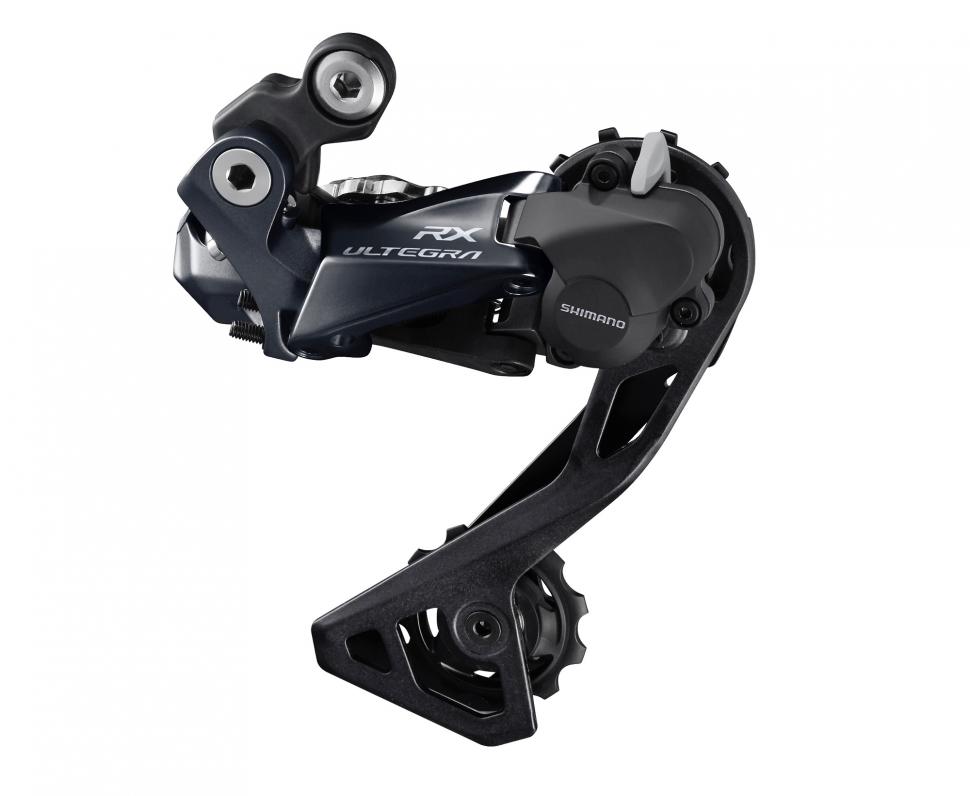
The new Shimano Ultegra RX rear derailleur – available for both mechanical and Di2 (electronic) systems – features what’s called Shimano Shadow RD+ technology with a chain stabilising switch to control the drivetrain over rough surfaces like the pavé.
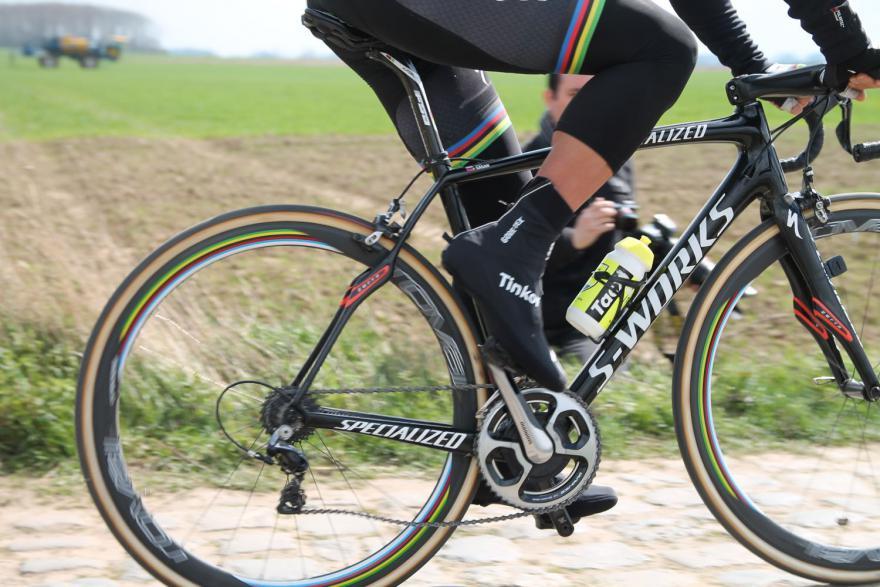
This picture shows a chain bouncing around on the pavé with a standard (non-clutch) rear derailleur.
When you flick the switch it’s harder for the rear derailleur pivot to move, resulting in less chain bounce over uneven surfaces. The result is that the performance of the drivetrain is more stable; the chain is less likely to hit the chainstay, there’s less chance of it dropping off the chainring, and it stays on the cassette better. That’s what makes it an attractive option for the cobbles. The essential elements of the design have been tried and tested in mountain biking for a few years now.
Read our story on the launch of the Shimano Ultegra RX rear derailleur here.
Who has it? Members of Trek-Segafredo were using the Ultegra RX rear derailleur over the cobbles earlier in the year so there’s a high chance that they will be again. A total of 14 (out of 18) World Tour teams use Shimano, so perhaps others will fit the new derailleur for Sunday’s stage.
Can I get one too? The Shimano Ultegra RX rear derailleur is available now.
Disc brakes
Why could they make a difference? It'll probably be dry for Sunday's stage but if it does rain the pavé will become slippery, water will puddle in the holes, and the dust will quickly turn to mud.
Disc brakes are able to offer a more consistent performance than rim brakes in rainy conditions because the braking surface is further from the wet and grimy road surface.
Also, that braking surface is steel rather than the carbon fibre that’s used for most high-end wheels these days. Brands are continually trying to improve braking performance on carbon (see Bontrager’s new Aeolus XXX wheels, for example) but it’s generally not amazing.
One other potential benefit is that disc brakes provide more tyre clearance, although you see the pros squeezing 30mm tyres into dual pivot brake callipers with a nominal maximum tyre width of 28mm.
Of course, there are downsides to disc brakes too, wheel changes in the event of a puncture being the biggest concern. Most riders will be sticking with rim brakes but it looks like some think the positives outweigh the negatives.
Who has them? Loads of teams have access to disc brake bikes now. The whole of Trek-Segafredo, for example, used disc brake bikes during this year's Paris-Roubaix, and they now have the new Madone Disc as an option too.
EF Education First-Drapac’s Taylor Phinney stuck a picture on Instagram of the disc braked Cannondale Synapse that he rode to ride in Paris-Roubaix. The team now has the option of the new Cannondale SystemSix aero bike too, equipped with disc brakes.
Several members of Team Sunweb rode the Giant Defy Advanced SL Disc in this year's Paris Roubaix so you might see that bike on the cobbles again on Sunday.
Specialized has recently launched an updated Venge in a disc-only format and the revamped BMC Timemachine is disc brake only too, so teams sponsored by those brands could make use of the new bikes.
Can I get them too? Oh yes! They’re everywhere! The Trek 2018 Domane SL 5 Disc, for example is £2,495 here.
Check out 12 of 2018’s hottest disc brake-equipped race bikes here.
Suspension
Why could it make a difference? When you watch races over the pavé on TV the roads look bumpy. When you ride it yourself it feels like you’re being repeatedly kicked in the arse while struggling to operate a jackhammer. The longer the sector goes on the more hurty and energy sapping it gets… But it’s fun! Anything that can help soften the bumps has to be welcome in terms of control, ability to lay the power down and reduction of fatigue.
Who has it? Some Trek-Segafredo riders are likely to be on the Trek Domane SLR Disc which has been around for a couple of years now, or the new version of the Trek Madone. These bikes come with IsoSpeed technology which, although it’s nothing like mountain bike suspension, does help smooth the ride.
Check out all the details on the new Trek Madone with adjustable IsoSpeed.
Go to our Trek Domane SLR 6 review for more details on IsoSpeed.
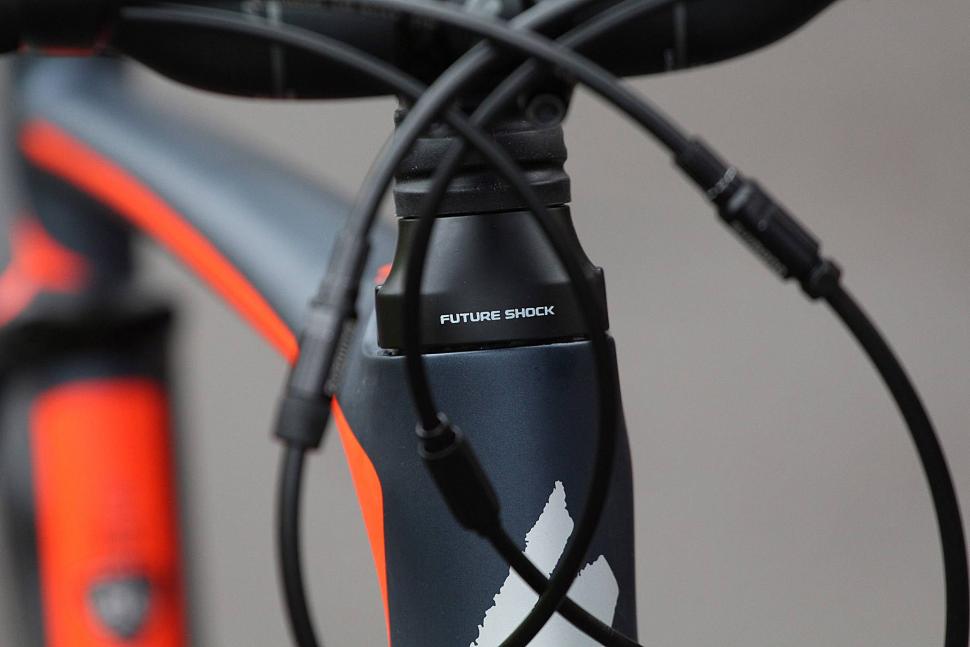
Specialized supplies Bora-Hansgrohe and Quick-Step Floors with its S-Works Roubaix (among other bikes) which features a FutureShock system. This uses a spring housed inside the head tube to provide 20mm of vertical movement at the handlebar. Several pro riders have used this over the cobbles before so don't be surprised if it makes another appearance on Sunday.
Read our review of the Specialized Roubaix Expert, another bike with the FutureShock system. 
Members of Team Sky have used Pinarellos with suspension over the past few years. Bradley Wiggins, for example, rode the Dogma K8-S – a bike that coupled flexible chainstays with a small elastomer damper at the top of the seatstays to provide a bit of extra cushioning – back in 2015.
Check out our story on the Pinarello Dogma K8-S from that time.
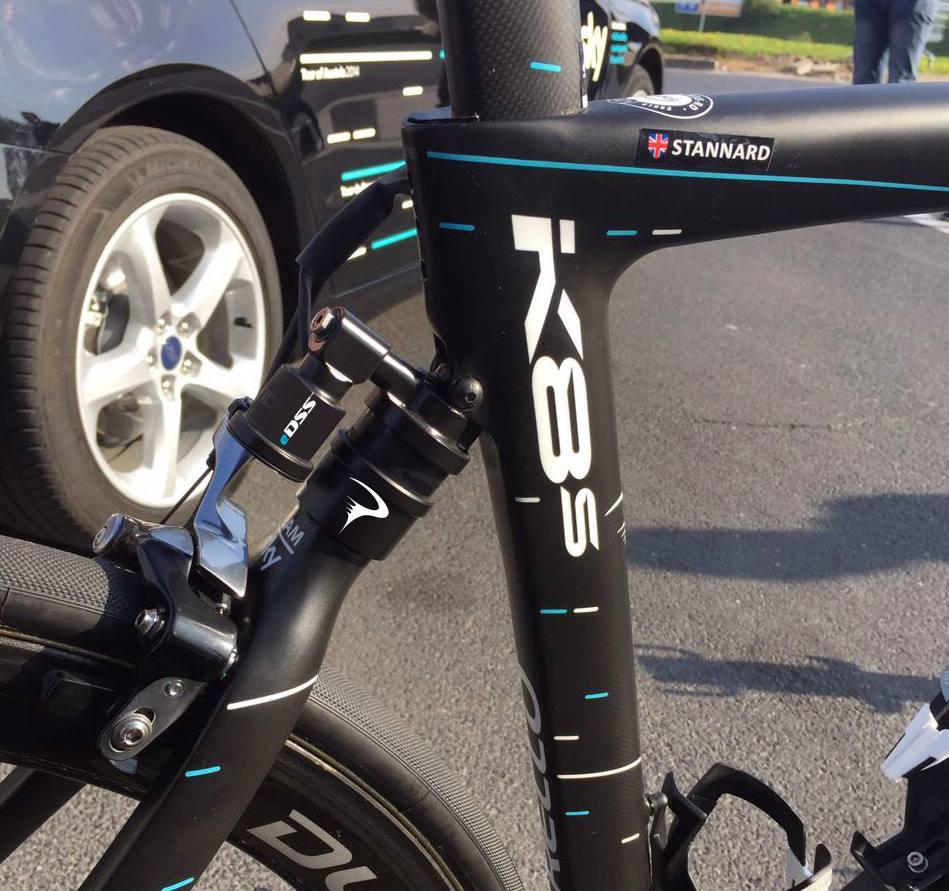
Last year, a couple of Team Sky riders used the K8-S with an adjustable electronic rear damper. Pinarello partnered with a suspension company called HiRide to develop the uprated system. The eDSS 2.0 (Electronic Dogma Suspension System) uses six axis accelerometers and gyroscopes that are able to take feedback from the road and adjust the damper unit accordingly. Pinarello says it can adapt the suspension to suit all types of road surface and terrain in milliseconds.
Check out our story on the Dogma K8-S for more details.
Members of Team Sky also rode the rim brake version of the Pinarello Dogma K10S over the cobbles earlier this year, so that bike could make a reappearance.
Can I get it too? You can certainly buy a Trek Domane or Madone with IsoSpeed and a Specialized Roubaix with FutureShock. You can buy the Specialized Roubaix here for £1,900.
The Pinarello Dogma K10S Disk frameset is available here for £6,699, although no rim brake Dogma K10S has yet been released.
And the stuff you won’t see…
SRAM 1x
SRAM’s 1x (single chainring) system uses a rear derailleur that features a clutch to eliminate chain slack (it has been around since 2015 on the road, unlike the Shimano Ultegra RX rear derailleur that was announced earlier this week). This helps to keep the chain in place over bumpy surfaces.
SRAM’s X-Sync chainrings have tall, square teeth edges that engage the chain earlier, and the traditional sharp and narrow tooth profile helps manage a deflected chain.
Although the Aqua Blue Sport Pro Continental team competes on 3T Strada bikes equipped with SRAM 1x drivetrains, it isn't racing the Tour de France.
Read our review of SRAM Force 1 here.
Tubeless tyres
Tubeless road tyres have been around for years now and they’re gradually growing in popularity, especially since Mavic introduced its Road UST wheel/tyre system last year. Advantages of tubeless tyres over standard clincher equivalents include lower rolling resistance, reduced risk of flats and increased grip.
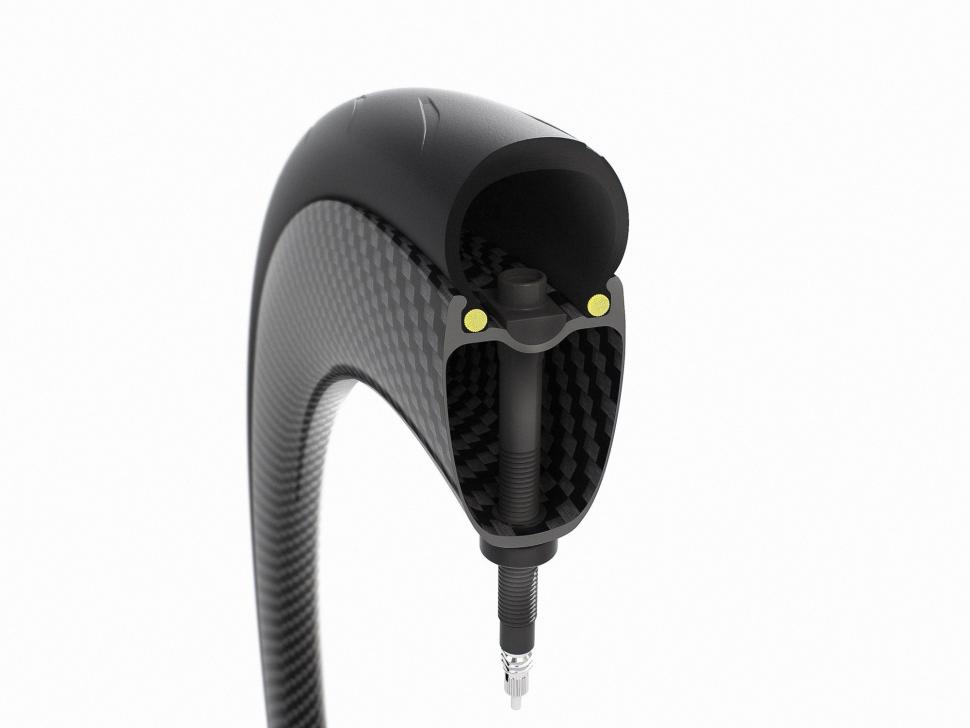
Check out our story: Mavic introduces Road UST tubeless system covering huge section of wheel range.
While a tubeless system might make sense if you’re riding a sportive over the cobbles, the pros want the weight and performance advantages of tubulars, and if they do get a flat they'll just swap the wheel.
Want more 2018 Tour tech? Then visit our special Tour de France tech 2018 tag page and fill yer boots!
Mat has been in cycling media since 1996, on titles including BikeRadar, Total Bike, Total Mountain Bike, What Mountain Bike and Mountain Biking UK, and he has been editor of 220 Triathlon and Cycling Plus. Mat has been road.cc technical editor for over a decade, testing bikes, fettling the latest kit, and trying out the most up-to-the-minute clothing. He has won his category in Ironman UK 70.3 and finished on the podium in both marathons he has run. Mat is a Cambridge graduate who did a post-grad in magazine journalism, and he is a winner of the Cycling Media Award for Specialist Online Writer. Now over 50, he's riding road and gravel bikes most days for fun and fitness rather than training for competitions.
Latest Comments
- TBR 1 hour 58 min ago
I got myself a klickfix freepack sport with the seatpost mount about 15 years ago which does exactly the same with more distance between saddle...
- chrisonabike 2 hours 17 min ago
Ah ... but of course she has to drive! Perhaps she is disabled (hence benefits), and/or is doing some dire job (in-home care support?) which pays...
- wtjs 2 hours 53 min ago
Traffic lights should routinely be programmed to turn red where sensors show speeding drivers are approaching...
- David9694 3 hours 19 min ago
Mum shocked as driver crashes into Helston house in the night...
- Rendel Harris 3 hours 35 min ago
By my reckoning there are eight comments from cyclists who don't think it's necessary, five comments from cyclists who think it's good, four...
- Rendel Harris 3 hours 59 min ago
Well obviously they couldn't touch the central line because there was traffic coming in the opposite direction and so they had to pass you within...
- David9694 4 hours 1 min ago
What are left with, from among the individual builders listed here I wonder, how many are taking orders? https://www.framebuilding.com/custom_uk...
- Simon E 4 hours 30 min ago
Those suburban commuters are just selfish. They don't want to acknowledge how their choice to use private car transport impacts negatively on...
- Simon E 5 hours 23 min ago
And a handy way for arseholes to excuse their shitty behaviour....
- Bigtwin 5 hours 57 min ago
Wonder if they could adapt it slightly to tell you when you should breathe?

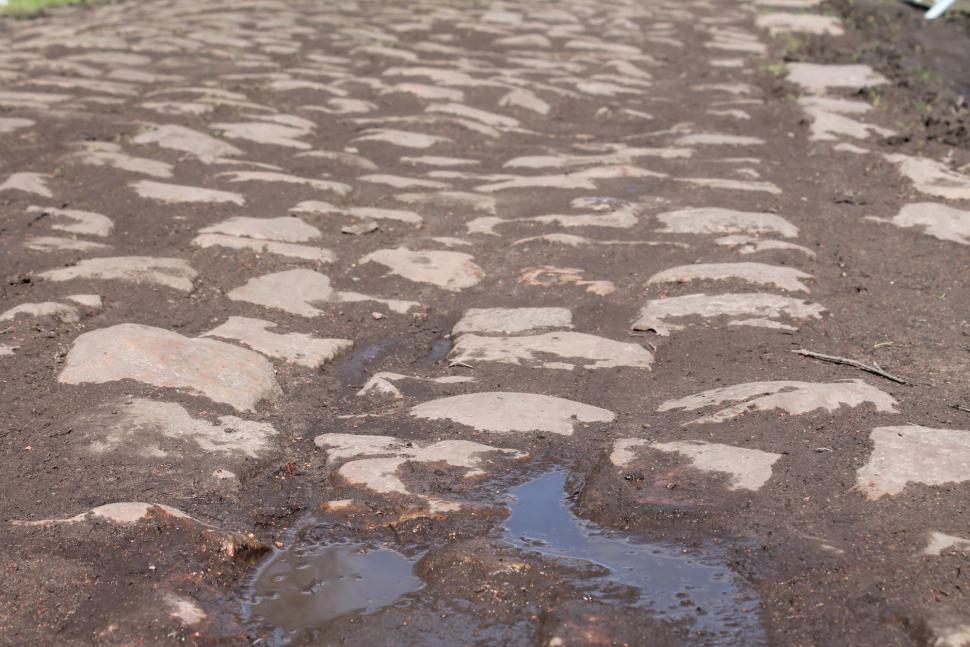
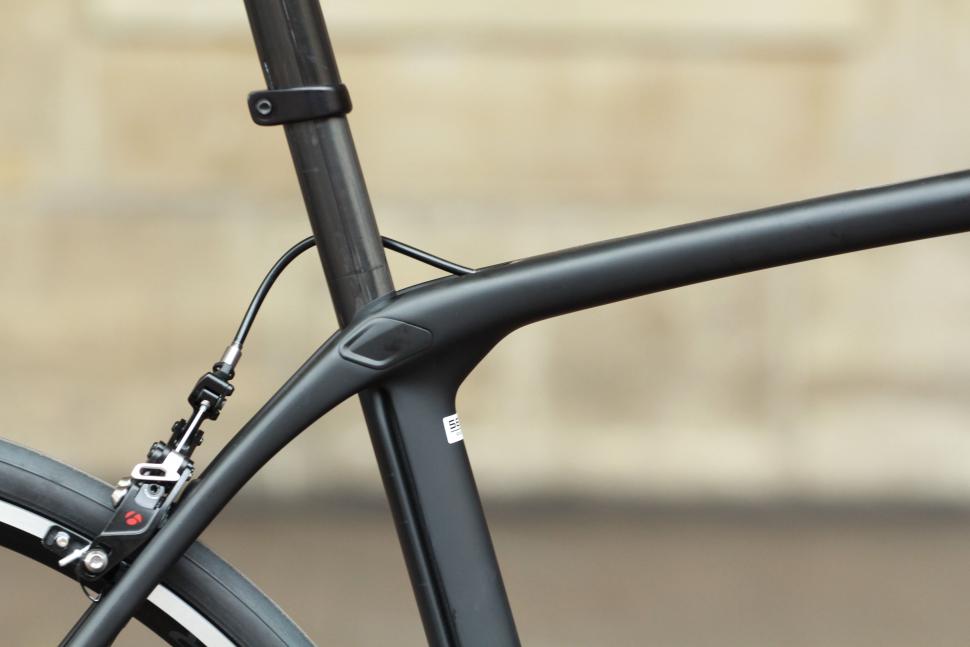

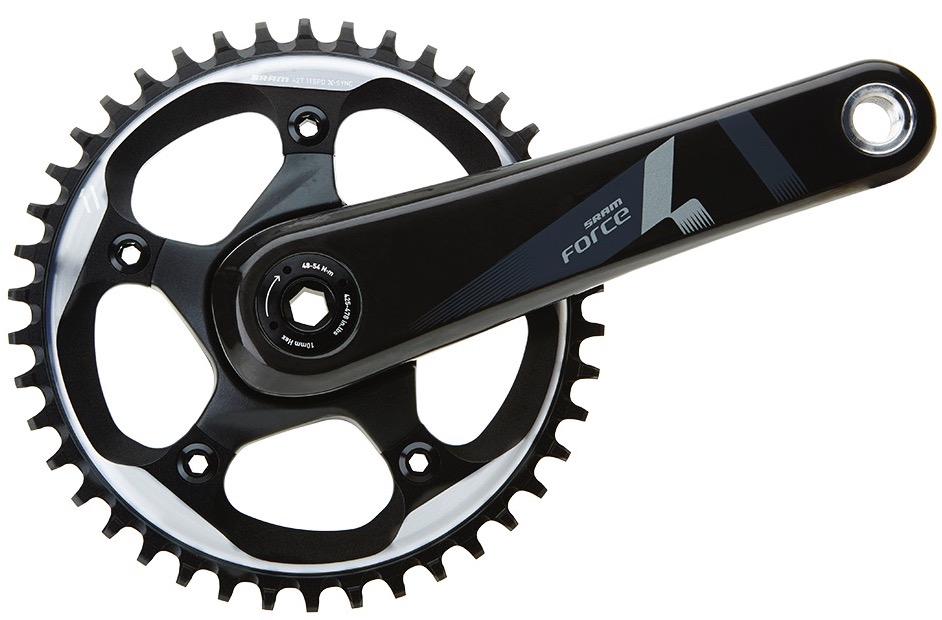
Add new comment
15 comments
I'm still trying to process the info the Pinarello frameset costs £6700...!
The difference between riding disc or calipers could also be rider preference.
Let's face it, they'll hardly use their brakes in a flat classic, rim brakes will be sufficient.
But when it comes to using neutral service in the event of a puncture, I bet they've probably got more rim brake wheelsets onboard, plus these will have normal quick releases, less likely the thru axle front or rear your bike has.
For the favourites, it's a safer option to run normal brakes, for a domestique, not such a big deal.
Maybe Katusha-Alpecin will have their Sram bikes in 1X mode with the clutch mech for Sunday's big race.
Ladders and BehinfTheBikeSheds are both bang on. The majority of riders are now choosing not to take the disc bike when given the choice (or in the case of the big hitters they’ll be refusing in case it hinders their chances of winning). The domestiques are generally the ones on the bikes, showing off the tech for the sponsors. If you’re a Pro rider you want the best bike for the job and it’s turning out to be the rim version. Trek started to the year stating that all riders would be on discs, but by Caltalunya they were down to one or two riders (I think it was one). Degenkolb is off them, GVA is off them, Sagan is off them, the list goes on.
Yes disc bike owners we hear you. You like the ‘modulation’ (or so you’ve convinced yourself after buying the next big thing) but the Pros are choosing not to ride them. They don’t give them any advantage and a wheel change is not fast enough compared to skewers.
Why the the disc haters continue to make stuff up?
QR skewers can be found on both rim and disc brake bikes.
Also I can change wheel faster on a disc brake setup. Place wheel in dropout and tighen QR skewer - job done. No having to release brake and more importantly remembering to redo brake after fitting. Heck, sen plenty of folk needing to let tyres down to get wheel out even after releasing brake.
Given how much goes into special suspension bikes for PR, surprised not to see the odd ShockStop stem in use. Fantastic & simple!
Tiesj Bendot won Strada Bianche on a non disc bike in piss poor weather conditions, what was Nick Terpstra, Vlaanderen winner - no discs ... when are you lot going to realise it's the grip of the tyres and the bike handling that is massively more important factors.
Discs are a joke in terms of how you and the manufacturers are pushing them, they simply are not needed for road racing even in very wet conditions, it certainly doesn't make it safer nor is there any performance advantage, quite the opposite.
Tubeless: SOME tubeless tyres are faster than SOME clinchers.
Have you got a disc brake bike or have you ridden one? One of my bikes has 105 rim brakes with Swiss Stop pads on an aluminium rim and the other one has hydraulic SRAM disc brakes. The rim brakes work fine. Both systems slow the bike down, but for the same decrease in speed, the disc brakes are SO much easier in terms of the amount of pressure you need on the lever. So, why wouldn't you go for the system that needs less strength to use? Yes, they're heavier, but not by anything that I notice. They are brilliant and, from my point of view, loads better.
So you readily admit you aren't that great at braking, fine, we can't all be able to learn how to brake properly and be bothered to set our brakes up properly, I've no beef with that.
But don't try the bullshit of saying the solution is a system that is flawed to high heaven and takes more effort to maintain the same speed than a caliper braked bike to make up for the fact you and others aren't able to use their brakes properly. This applies in racing/competition and offers no more safety benefit nor speed advantage for non competitive types either.
I've never not being able to modulate my braking, the only time I ever didn't have enough braking in 35 years of road riding was when I was using some old chrome steel rims in the wet in the early 80s, I was probably about 14/15 and I got a bit over-enthusiastic.
Maybe all the greats throughout cycling history have been doing it wrong without discs, how did they cope with narrow tyres too.
This really matters to you, doesn't it?
BehindtheBikeShed is so scared of being behind the times, he's going on a crazed offensive against better braking.
Wow.
Apparently in your incandescent disc brake fury you misunderstood both the tone and the content of my post. Let's spell it out in big colourful letters so you get what I said.
I said rim brakes work fine. I said they slow the bike down. It sounds to me like they're working OK. It sounds like I slow down when I apply the brakes. Hooray.
I also said that it takes less effort to apply the brakes on a disc brake bike. I didn't say that it was difficult to use rim brakes. I didn't say anything about modulation. I didn't say anything about maintenance.
So, in summary, rim brakes are fine, disc brakes are also fine but one takes slightly less force at the lever than the other.
Mr Shed said ......
...... Maybe all the greats throughout cycling history have been doing it wrong without discs, how did they cope with narrow tyres too. [/quote]
Indeed. Or the Sturmey Archer 3-speed or the wooden wheels or the downtube shifters?
Indeed. Or the Sturmey Archer 3-speed or the wooden wheels or the downtube shifters?
[/quote]
Wooden rims were great, very light, but expensive to make.
and guess what Walt Van Aert the famous Cyclocross rider rode in a wet and muddy Strade Bianchi! (And Flanders) And Sagen, who’s pretty handy on a mountain bike, rode in the Tour of Flanders!
Looks like they pay the pros to ride discs in the more famous races (Roubaix, TDF) and the rest of the time they stick to what they need.
Btw, discs are great on an MTB with 2” wide knobby tyres that can grip in mud.